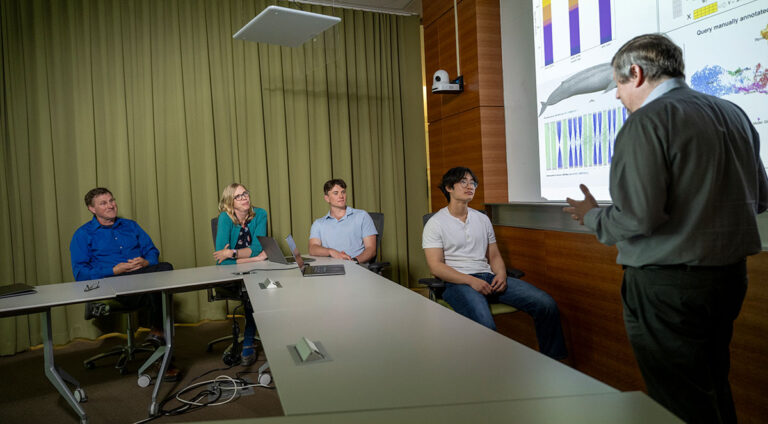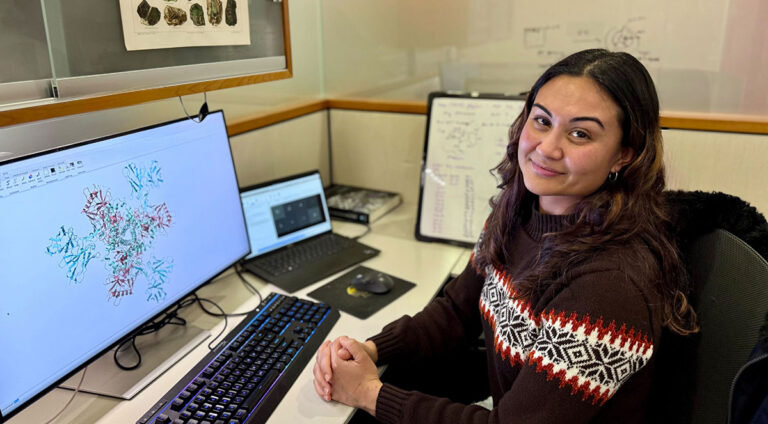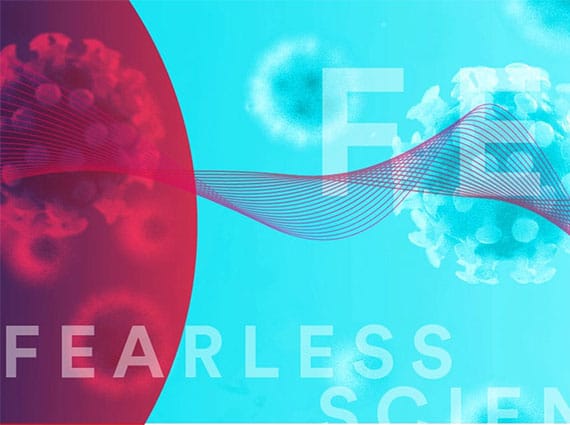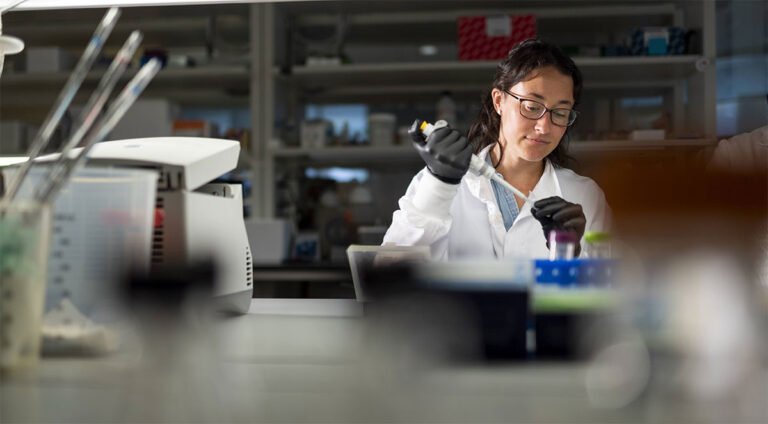
News & Stories
In just 17 amino acids, a master regulator of viral genome replication
New research out of the John W. and Jeanne M. Rowe Center for Research in Virology at Morgridge reveals a starring role for a short, 17 amino acid sequence in viral replication. The results will likely ramify across an enormous class of viruses with related replication machinery.

Morgridge Institute CEO Brad Schwartz announces retirement
After more than 13 years as CEO of the Morgridge Institute, Brad Schwartz has announced plans to retire. Creating new possibilities for what contemporary science can be, under his tenure Morgridge championed curiosity-driven research, ushered in major new campus partnerships, and deepened our connection to society through mission-driven public engagement.

Searching for relevance in a sea of 39 million scientific papers
A bioinformatics team at Morgridge created a new hybrid machine learning tool that reduces two stubborn problems when mining insights from big data: false positives and hallucinations.

When the box pushes back: Reflections on the spirit of resilience at Morgridge and WARF
Roma Broadberry has a unique perspective on Wisconsin science, as both a biophysics Ph.D. student in the Tim Grant Lab at Morgridge, and a WARF ambassador. Broadberry reflects on the resilience that helps both organizations thrive in challenging times.

Featured Event
March 10 @ 5:00 pmFearless Science Forum: The Art of Seeing More
Science and art are often thought of as mutually exclusive passions, but creativity and curiosity entwine these disciplines. The Morgridge Institute for Research will partner with the University of Wisconsin–Madison to host our latest Fearless Science Forum, The Art of Seeing More, an exploration of the creative connections between science and art. Panelists include Morgridge Investigator Randy Bartels, Letters and Science Dean Eric Wilcots, and Professor and artist Meg Mitchell.
